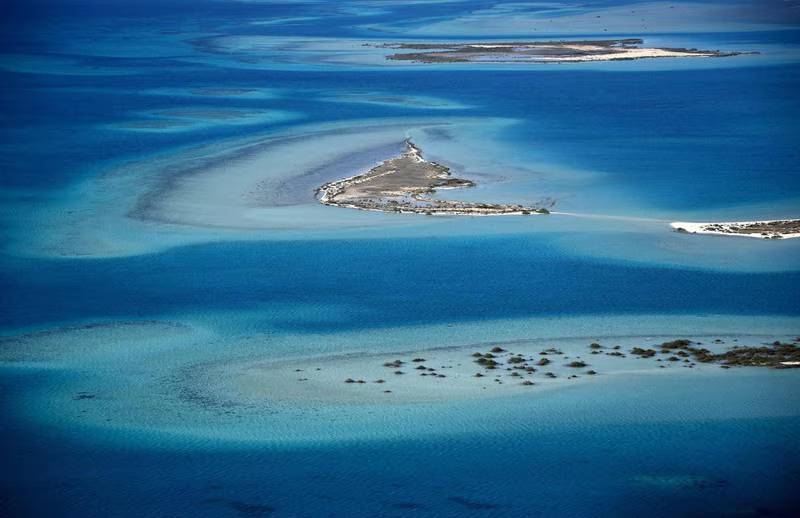
The Red Sea coast, Saudi Arabia. (Credit: AFP)
Led by Riyadh, Abu Dhabi and Manama, the Gulf Cooperation Council countries (Saudi Arabia, United Arab Emirates, Qatar, Oman, Bahrain and Kuwait) are exploring the possibility of creating a single unified visa for tourists, modeled on the European Union’s Schengen area.
This visa project could materialize "very soon," said the Bahraini Minister of Tourism, Fatima al-Saifrai, during the Arabian Travel Market (ATM), a tourism and travel trade show, in Dubai.
"I think tomorrow's travelers will still be looking for multiple stops, itineraries and regions," said Fahd Hamideddine, CEO of the Saudi Arabian Tourism Authority. According to Sairafi, the idea is to present the Gulf countries as a "unified" destination, with a desire to harmonize the calendar of regional events.
Abdallah al-Saleh, Undersecretary of the UAE Ministry of Economy, sees it as an opportunity to put in place "regulations, policies and general procedures to facilitate growth."
The aim is to attract foreign visitors to the Gulf. The regional market, segmented between cultural, sports and religious tourism, currently relies mainly on domestic or regional tourism from neighboring countries. This is with exception of Dubai, which has become a popular international destination and — to a lesser extent — Oman with its lush valleys and popularity for camping.
While Riyadh, Doha and Muscat in particular hope to capitalize on the tourism sector, they are far outpaced by Abu Dhabi. Tourism accounts for 12.1 percent of the federation's GDP, according to official figures. Despite the desire to present themselves as a "unified" destination, the six GCC countries remain competitors in the tourism market.
Saudi Arabia in particular, is banking heavily on this sector to diversify its economy and prepare for the post-oil era. Following the example of its neighbors, Riyadh has just inaugurated a fast-track procedure for obtaining a visa online. The kingdom also plans to open 315,000 new hotel rooms and in March launched a new airline, Riyadh Air, which intends to serve 100 international destinations.
Saudi Arabia plans to invest a staggering $1 trillion in the tourism sector over the next decade, starting with the archaeological site of al-Ula. The site, which has been abandoned for years, will be used as a showcase for Saudi tourism. Many large-scale projects have been launched to attract visitors and foreign investors, such as the luxurious Red Sea Project — which covers 28,000 km2 along the west coast — and the Trojena ski resort in the heart of the futuristic NEOM metropolis, which is set to host the 2029 Asian Winter Games. As part of its Vision 2030 program, Arabia has set itself a lofty goal: to attract 100 million tourists by the end of the decade.
This article was originally published in French in L’Orient-Le Jour.